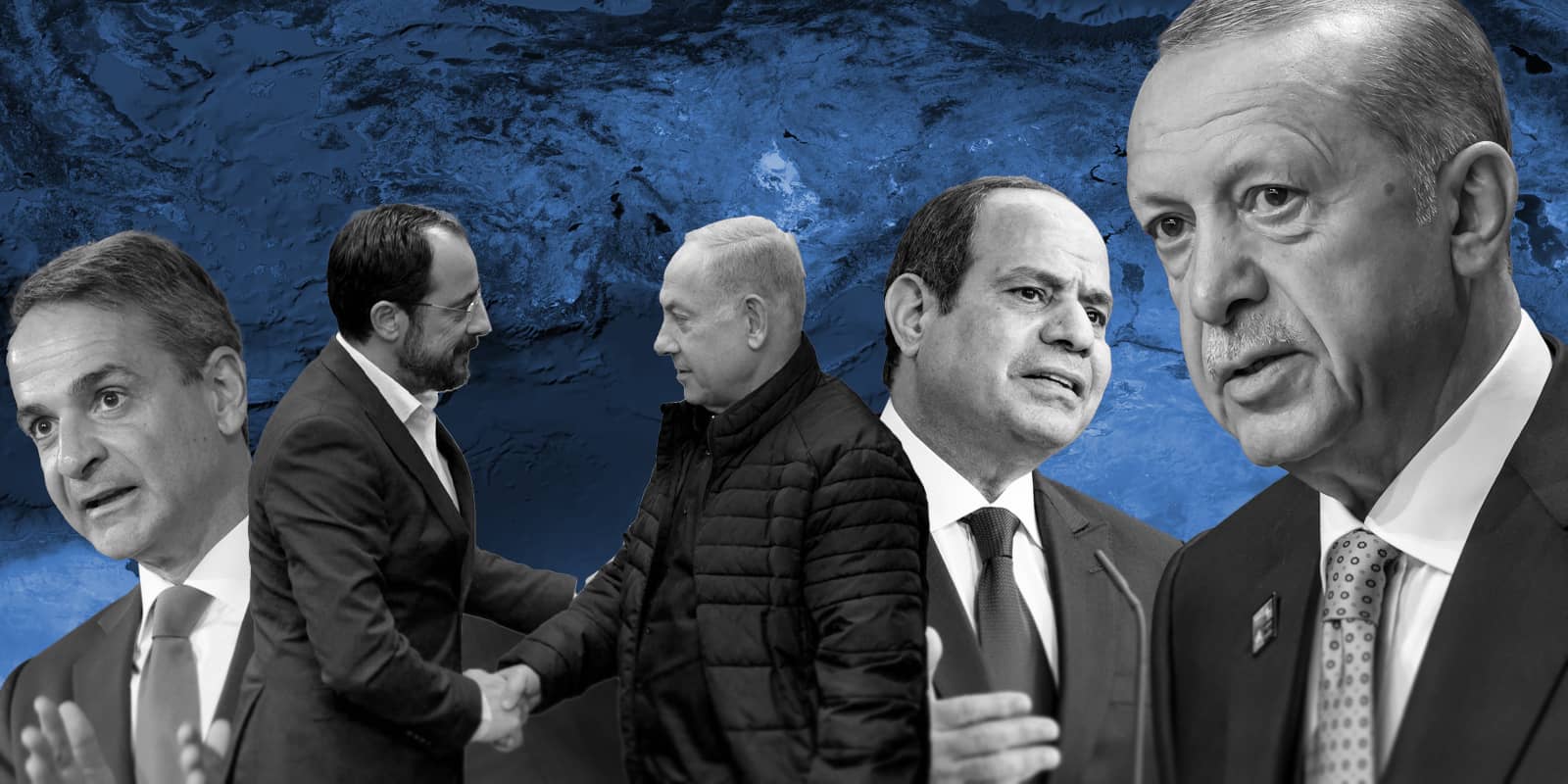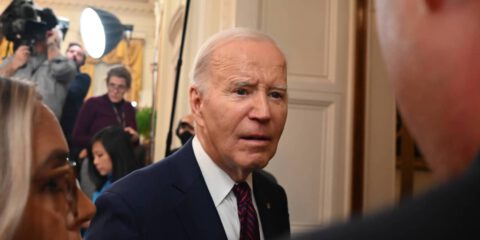Turkey, at least as long as the AKP is in power, cannot be considered a reliable partner for major national projects such as energy exports. Cyprus and to some extent Greece proved their value in an emergency as Israel’s backup air and sea “rear areas.” Sustaining an effective dialog with Cairo and avoiding acts and statements that would exacerbate tensions must remain a vital aspect of Israeli policy.
Three aspects of the new realities, generated by the war, stand out in terms of their implications for Israel’s policies and preferences in the Eastern Mediterranean:
- Despite the earlier indications of a rapprochement between Israel and Turkey, President Recep Tayyip Erdogan switched back to his hostility towards Israel and support for Hamas.
- Cyprus, and to some extent Greece, proved their worth, expressing diplomatic support and providing Israel with vital logistical depth when flights and shipping by foreign lines were curtailed.
- Egypt, while uneasy at the sights in Gaza and at loose talk in Israel about pushing the Gazan population into Sinai, played a useful role in stabilizing the humanitarian situation in the southern part of the Gaza Strip.
Turkey cannot be relied upon as a partner; more should be done to shore up the Cypriot and Greek connection; and efforts should be made to sustain the Egyptian relationship and ensure a commonality of interests for “the day after”.
What did we re-learn about Erdogan?
Within days of the outbreak of the war, it became clear that the hopes generated in recent months of an improved relationship between Israel and Turkey were sadly unfounded. President Recep Tayyip Erdogan did stop short, by his own admission, of cutting off diplomatic relations with Israel altogether, but announced (November 4, 2023) the recall of Ambassador Sakir Ozkan Torunlar for consultations and declared that he had “erased” prime minister Netanyahu as an interlocutor.
This came as a response to Israel’s own decision (October 28) to officially recall Ambassador Irit Lillian (in fact, she left on October 19, amidst a spate of threats against the Embassy and Israelis). Foreign Minister Eli Cohen took this drastic step in the wake of Erdogan’s speech at a massive rally marking the republic’s 100th anniversary, in which he rejected the description of Hamas as a terrorist organization and sharply attacked Israel for its operations in Gaza.
In a demonstration of dismay over American support for Israel, Erdogan chose to embark on a tour of the countryside during United States Secretary of State Anthony Blinken’s visit. At the popular (or populist) level, a march was organized against the US presence at the Incirlik Air Force Base. Erdogan’s key coalition partner, Devlet Bahceli, openly raised the idea of intervening militarily in support of Hamas; and pro-government papers such as Yeni Safak published countless articles with antisemitic tropes and comparisons with the Nazis.
For those in Israel who had been nurturing hopes for a real improvement in relations with Turkey, this came as a painful setback – but it should not have come as a surprise. Erdogan’s basic instincts on Israel have always been hostile – apparently going back to his days as a teacher, when he railed against “the Communists, the Freemasons, and the Jews” – and have surfaced repeatedly at times of crisis. He needed an improved image so as to court Israel’s newly found friends in the Gulf: but this was never more than a thin veneer, easily torn.
The implication is clear – Turkey, at least as long as the AKP is in power, cannot be considered a reliable partner for major national projects such as energy exports. Public reactions will probably be translated into a significant reduction in the demand for Turkish goods. There have been fluctuations before, but not against the background of a searing national experience such as October 7.
Internationally, the expectation must be that Turkey (and Qatar!) would divest themselves of the presence of Hamas leaders on their soil. A member of NATO hosting an organization of this nature is a contradiction in terms: and while the Treaty’s 1949 Statutes have no provisions for removing a member, there are ways of rendering this membership meaningless.
Cyprus and Greece prove their value
The solidarity visit (October 21, 2023) of President Nikos Christodoulides of Cyprus – elected in 2022, but a longstanding friend of Israel since his days as Foreign Minister – was the symbolic expression of an increasingly significant relationship. Prime Minister Kyriakos Mitsotakis of Greece planned a visit early on, postponed it as the fighting intensified, and finally came on October 23. The position he took at the so-called regional summit in Cairo (October 21) was among the reasons the Arab participants failed to generate the outcome they sought, rendering it less problematic from Israel’s perspective.
He did, however, meet as well with Palestinian Authority leader Mahmoud Abbas during the humanitarian aid conference in Paris, and joined his French host in expressing concern (as “a friend of Israel, offering hard truths”) about civilian lives lost in Gaza.
Even more important than their diplomatic stance, Cyprus and to some extent Greece proved their value in an emergency as Israel’s backup air and sea “rear areas”. Many air and shipping lines chose to cancel their service to Israel due to the risk of coming under rocket attack. Under these circumstances, Israeli national carriers such as the shipping line Zim and the now privatized national airline El-Al – in which the government holds a privileged position, enabling it to oblige them to provide services during wartime – were able to shuttle between Israel’s ports and airports to neighboring Larnaca, Limassol, Piraeus and Athens, sustaining Israel’s vital lines of supplies and communications.
Egypt remains a key player
Troubled by the sights from Gaza, under pressure from an anti-Israeli public and from its Arab “sisters”, and angered by loose talk in Israel, including at the ministerial level, about pushing the Gazan population out into Sinai, Egypt has been a problematic partner since the war began: exchanges between the two countries have been limited to the narrow professional (military and intelligence) channels, and, in the public domain, Egypt joined the choir of condemnation.
In practice, however, there was no act (so far…) of degrading diplomatic relations (whereas Jordan recalled its ambassador for consultations). The dispatch of Israeli warships to the Red Sea was facilitated by passage – in wartime – through the Suez Canal, as both countries have an interest (alongside Saudi Arabia) in neutralizing the threat of missile and drone attacks from the Houthi-held parts of Yemen.
Most importantly, Egypt became the conduit of humanitarian aid to the southern zone of the Gaza Strip, thus facilitating supplies – to the dismay of many angry Israeli citizens, but in line with the IDF’s strategy of inducing the uninvolved to leave the battle zones in Gaza City. Egypt is bound to remain a key strategic player, if indirectly, in any design for the next stages of combat – and even more so as plans begin to emerge for “the day after”. Sustaining an effective dialog with Cairo and avoiding acts and statements that would exacerbate tensions must remain a vital aspect of Israeli policy, in line with the Mediterranean policy at large.
Lessons learned
While this is certainly not a central concern during the war, it is nevertheless a significant (and in some respect, vital) lesson – telling friend from foe, avoiding any dependence and reducing economic interactions with essentially hostile players, and investing efforts and resources in tightening the bonds of strategic alignment with Like-Minded (LM) partners in the Eastern Mediterranean. Whatever their role may be in seeking the release of hostages, neither Turkey nor its Qatari ally should have any role in post-war Gaza. An Egyptian role however is inevitable, and a well-managed Cypriot and Greek involvement could facilitate (for a new and different regime in Gaza) the benefits of an opening to the world that were impossible under Hamas.
JISS Policy Papers are published through the generosity of the Greg Rosshandler Family.
Photos: Shutterstock, IMAGO / Metodi Popow, IMAGO / ZUMA Wire, IMAGO / NurPhoto








 - בניית אתרים
- בניית אתרים